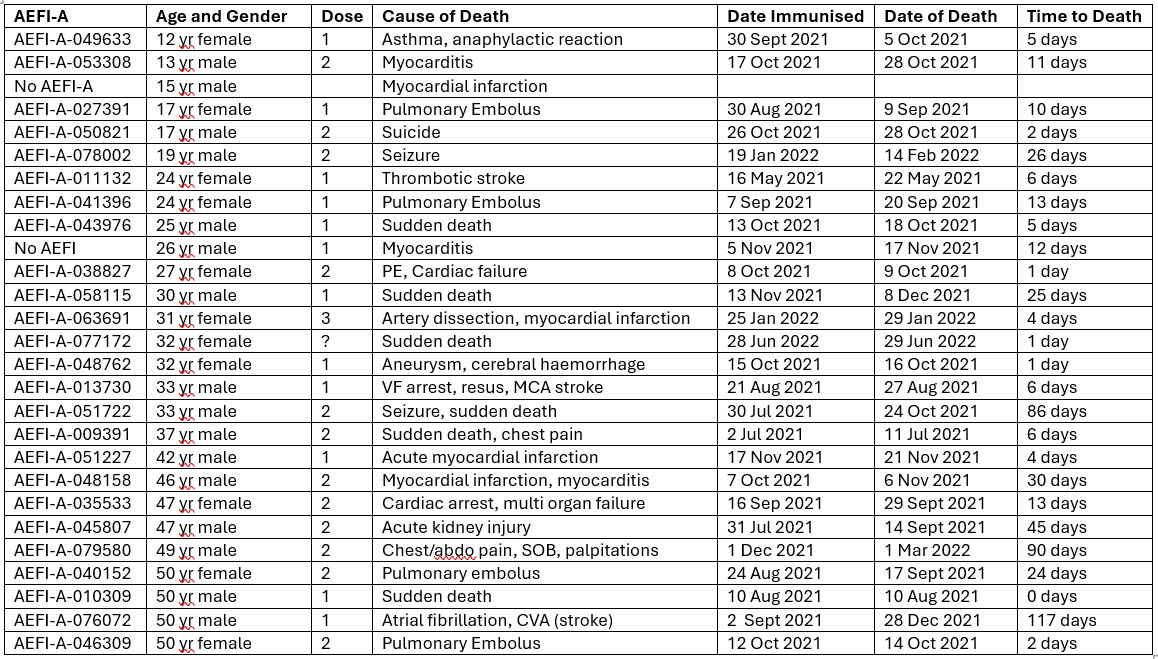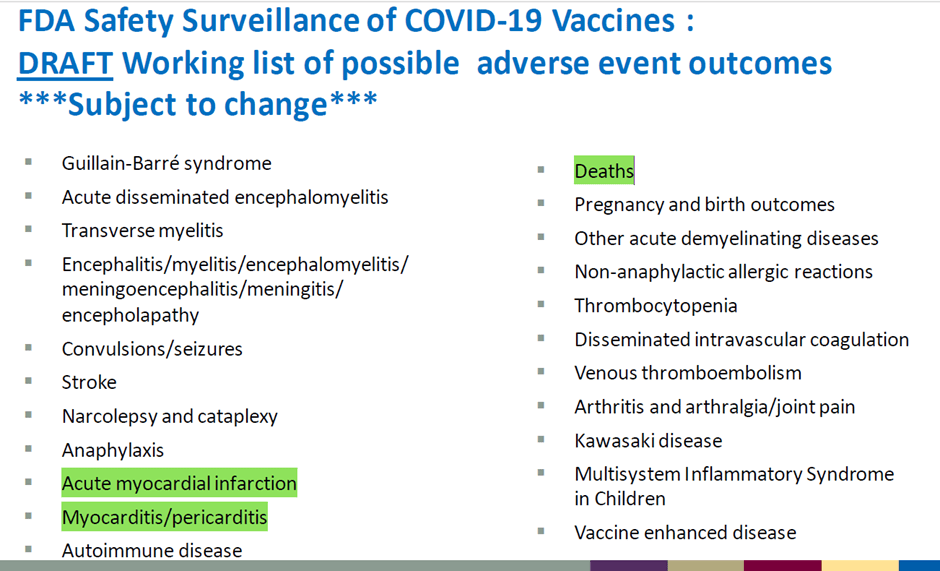Table of Contents
New Zealand Doctors Speaking Out with Science
Another one of those curious stories where one feels crucial information is missing.
A fit, healthy, active, normal-weight 48-year-old man had a cardiac arrest in the middle of the night. He’d even seen his doctor a few days prior to the event and ‘everything was fine’.
Fortunately for him his wife was there, heard him, remained calm and knew what to do. He required defibrillation to get his heart back into a functional rhythm.
The surgeon thought perhaps he had a family history but that has not been confirmed.
We presume the CIDG (Cardiac Inherited Diseases Group), which goes searching for those elusive diseases that run in families, has been getting increasing referrals since the covid injection rollout as peoples’ hearts continue to stop unexpectedly.
As a mainstream media journalist working during the pandemic, we assume he had followed the official narrative and taken the COVID-19 injections. However, that isn’t mentioned in the story and it’s the elephant in the room.
Afterwards, he asked himself:
“So why would I go to bed at night and think my heart would stop beating?”
A COVID injection is pretty high on the list of things that need to be considered in determining the cause of his cardiac arrest.
Below are some other New Zealanders who have died suddenly following covid injections. In some of these people, the heart has just stopped, but unlike with this journalist, no one was able to restart it.

We wonder if he has used his journalism skills to research the possible role of the injection in his cardiac arrest.
The Pfizer injection was not a normal ‘vaccine’, instead using gene technology to turn the human body into a spike protein factory. During its development, it was expected that events including cardiac arrest and death might be adverse effects. The following slide is taken from an Oct 2020 presentation discussing vaccine safety monitoring.

Even our own government expected up to 1.1% of Kiwis to experience a severe adverse reaction. The following is from a February 2021 government briefing document about how to maximise vaccine uptake among border workers.
“57) Agencies also consider that there could be an argument for a leave support scheme that compensates for time off due to adverse reactions for up to a week, rather than time off to receive vaccination. Severe adverse reactions are currently very rare, with current data suggesting severe adverse reactions is less than 1.1 per cent.”
One of the fatal events that can occur is myocarditis (inflammation of the heart muscle) which can cause an arrhythmia – abnormal heart rhythm – due to disturbance of the electrical conduction pathways, which can lead to cardiac arrest. Some people will experience palpitations (fluttering, fast or irregular heart beat), chest pain or tightness, shortness of breath or fatigue, but some people will have no warning before their heart stops – often in the early hours of the morning or during physical exertion.
All four official post-vaccination deaths in New Zealand are due to myocarditis.
- 57 yr old woman written up here
- 26 yr old Rory Nairn who was not advised that myocarditis was possible, what the symptoms were or what action should be taken if he experienced those symptoms
- 13 yr old boy
- Fourth person
Interestingly, the coroner’s report for the 13 yr old boy mentioned above, has just been released and showed ‘a “microscopic” amount of myocarditis in a crucial part of his heart’. And that is all it takes to stop the heart – a blip in the electrical pathways leading to cardiac arrest. Presumably because of his age, his heart was examined more thoroughly than an older person’s would be and so this was found. How many ‘microscopic’ patches of myocarditis have been missed in other hearts at post-mortem in people who have died suddenly and unexpectedly?
Another potentially fatal adverse outcome following COVID-19 injections is a heart attack, when a blockage in a coronary artery stops blood flow to part of the heart causing dysfunction to the pump or the electrics. The most common causes of blockage are atherosclerosis or a blood clot or a combination. Blood clots are on the list of adverse events following the Pfizer injection.
The gentleman said he had an angioplasty – a treatment to open up a blocked artery – so presumably a blockage was at least partially causal.
The problem with post covid injection adverse events is that they can easily be passed off as something else, particularly if there is no tissue sample and no staining for vaccine-induced spike protein. As a result, the general public isn’t aware that a vast array of (potentially fatal) medical conditions can be a downstream effect of the injection. An example is the strangely split coronary artery of Kiwi nurse Divya Manoj, lack of any other causation brushed over by the pathologist and coroner.
Just this month, April 2024, we have a study from Saudi Arabia, showing that, in a survey of post-jab patients who reported symptoms diagnosed by doctors as cardiac complications, 27% were hospitalised, with 13% of that study population needing an ICU stay. Obviously, a different country but using mRNA injections into a near identical species. We are struck by the contrasting number of Kiwi heart patients initially mislabelled with anxiety or costochondritis, by our more captured (and cash-strapped) health system.
If doctors and patients aren’t considering the injection in situations such as this, research won’t be being done into how to turn off the spike protein factory and help the body to eliminate synthetic mRNA and spike protein or how to metabolise and excrete the lipid nanoparticles.
We look forward to the day when the mainstream media can see and acknowledge the elephant and start asking the appropriate questions. Then the public can start understanding the cause of the increasing death and disability occurring around them.
Even if mainstream journalism remains oblivious to increasing death in the population, the Wanganui Med’s Shed has noticed. A recent FB post said:
“The Men’s Shed makes coffins. These are generally available on demand but lately we’ve had a run on them so our skilled workers have had to pull out all stops to catch up.”









